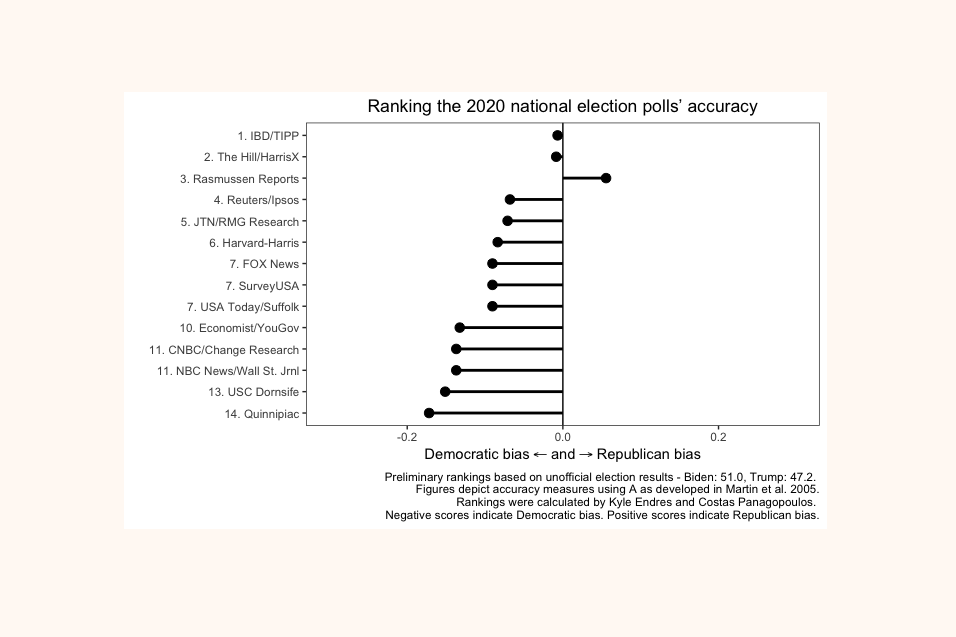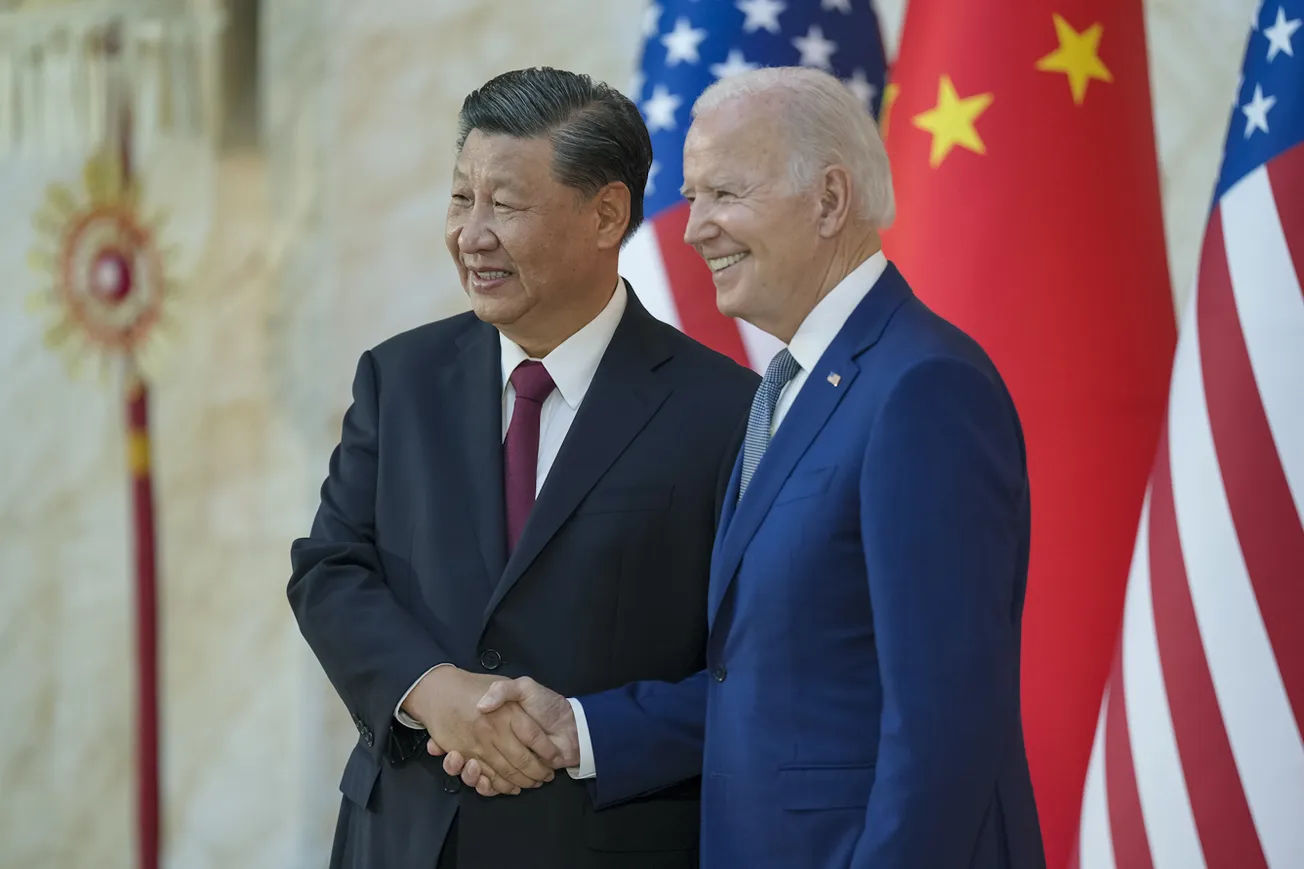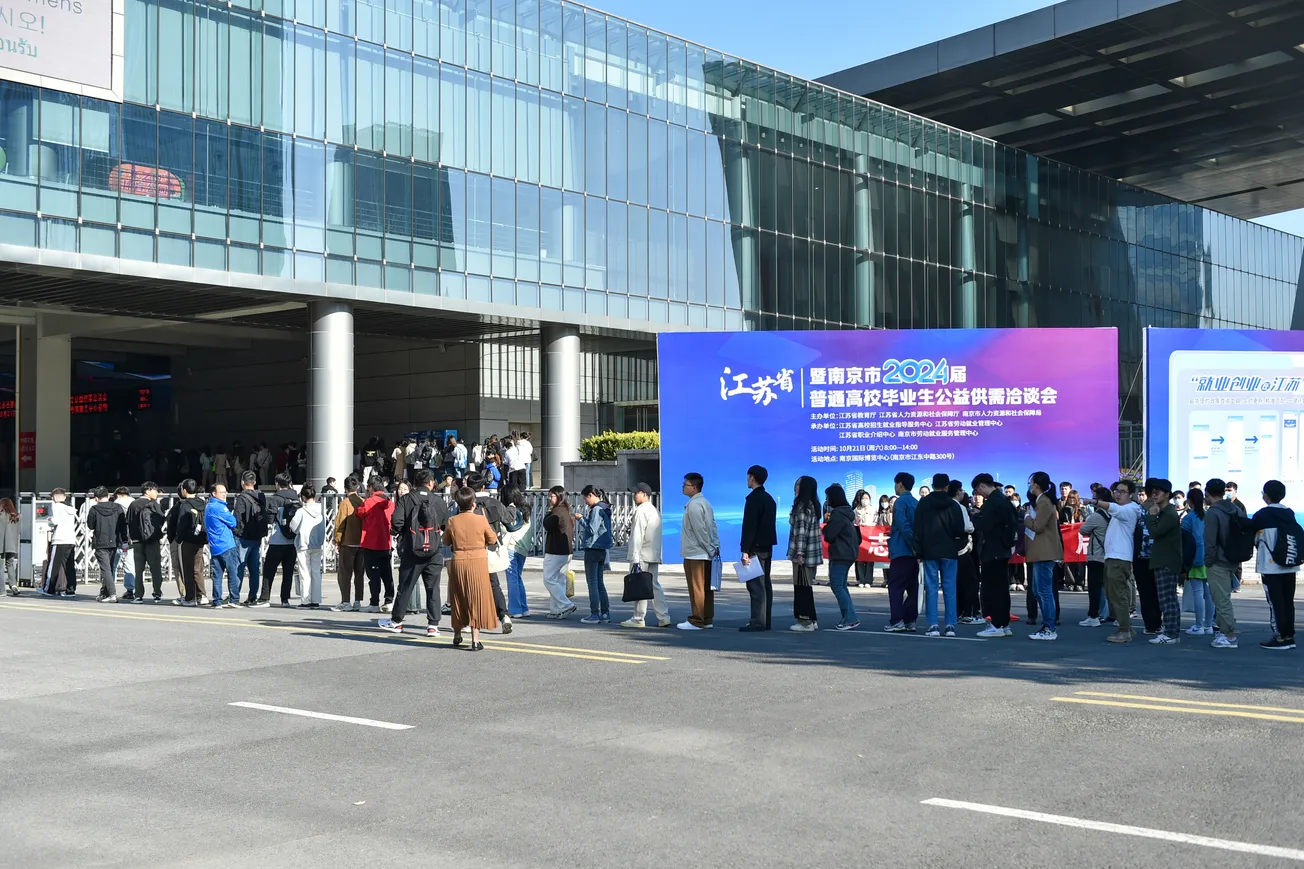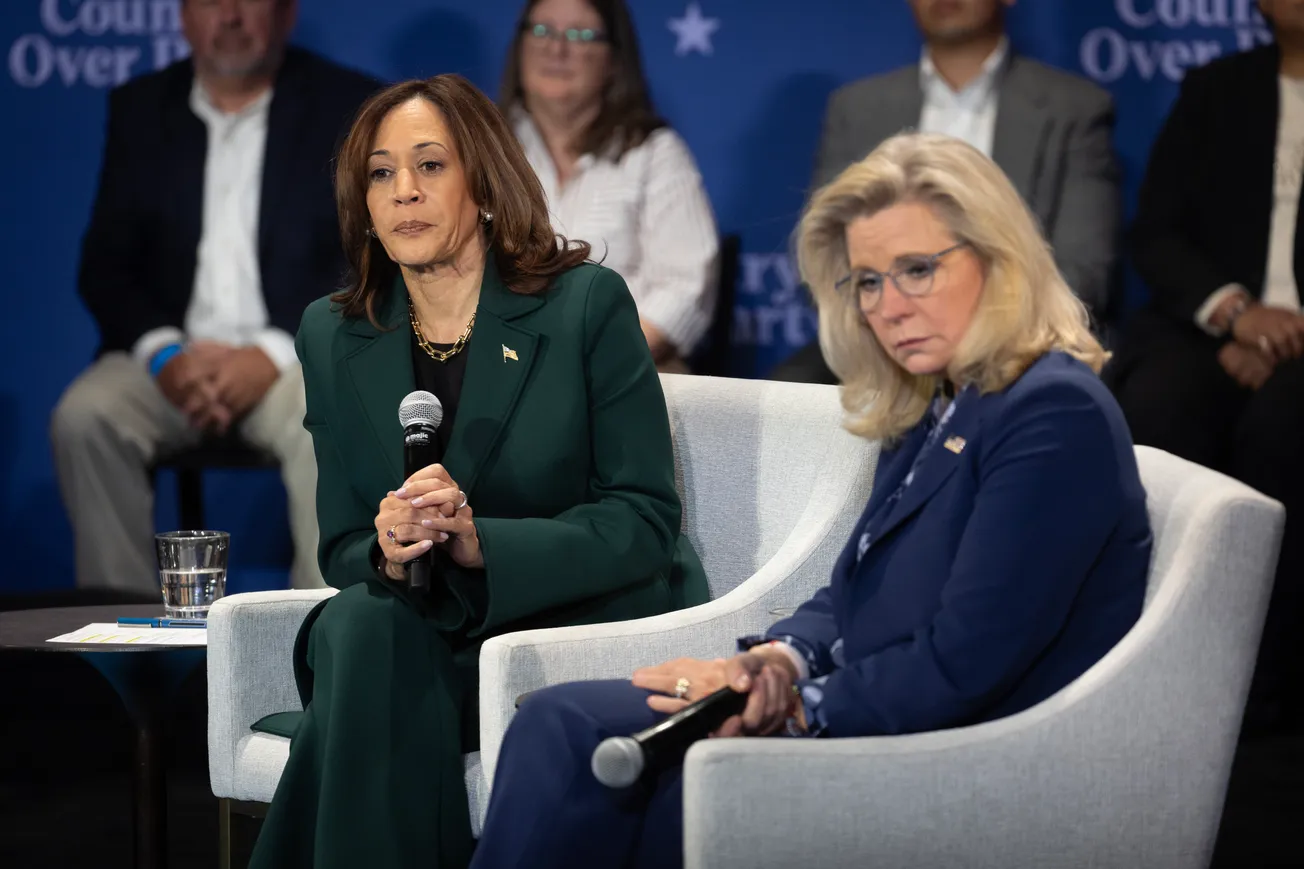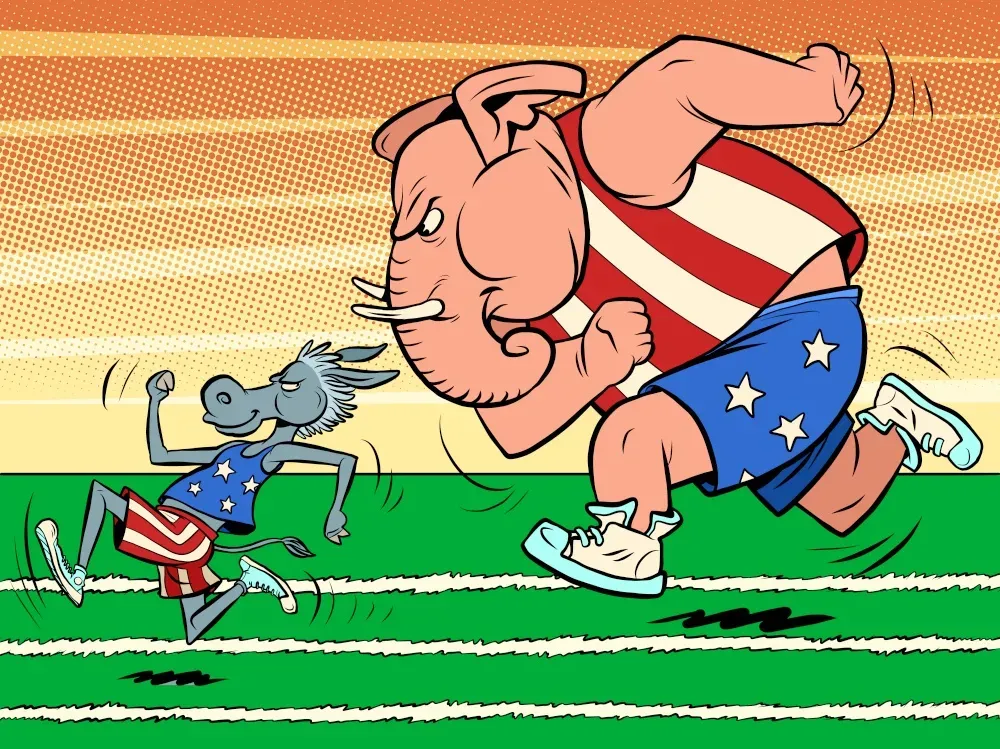China’s economy has struggled recently as once-eager foreign companies depart and trade partners rethink their close ties with the increasingly dictatorial nation. As Beijing tightens control over its people and the economy, Americans have noticed. China has plunged to its second-lowest favorability level among U.S. voters, the latest I&I/TIPP Poll shows.
TIPP started tracking China’s favorability in March 2021. To compute the index, we use survey responses to the question: “Generally speaking, is your opinion of China: Very Favorable, Somewhat Favorable, Not Very Favorable, or Not At All Favorable?”
The indexes range from 0 to 100. A reading of 50 or higher is favorable, while a reading of 50 or lower is unfavorable — 50 is neutral.
In the most recent national online I&I/TIPP Poll of 1,369 voters, taken Aug. 2-4, the proprietary index of how Americans feel towards China, the U.S.’s main global rival, fell an entire point from 28.1 in July to 27.1 in August. As recently as February, the index stood at 35.2, nearly 30% higher than the current reading.
Indeed, the August reading is the second-lowest ever and remains 4.5 index points below the long-term average of 31.6 for the China Favorability Index.
China’s reputation has suffered greatly in recent years as it has embarked on a massive military build-up to challenge U.S. influence overseas. It has come to be seen by many nations, fairly or not, as a predatory trading partner.
Among no group within our 36 demographic categories does China’s favorability rise above 50, the breakeven level for the index. Even so, there are some significant differences.
Start with the obvious: Political affiliation. Among Democrats, the index stands at 33.9 in August, well above the 25.5 for independents and 18.3 for Republicans.
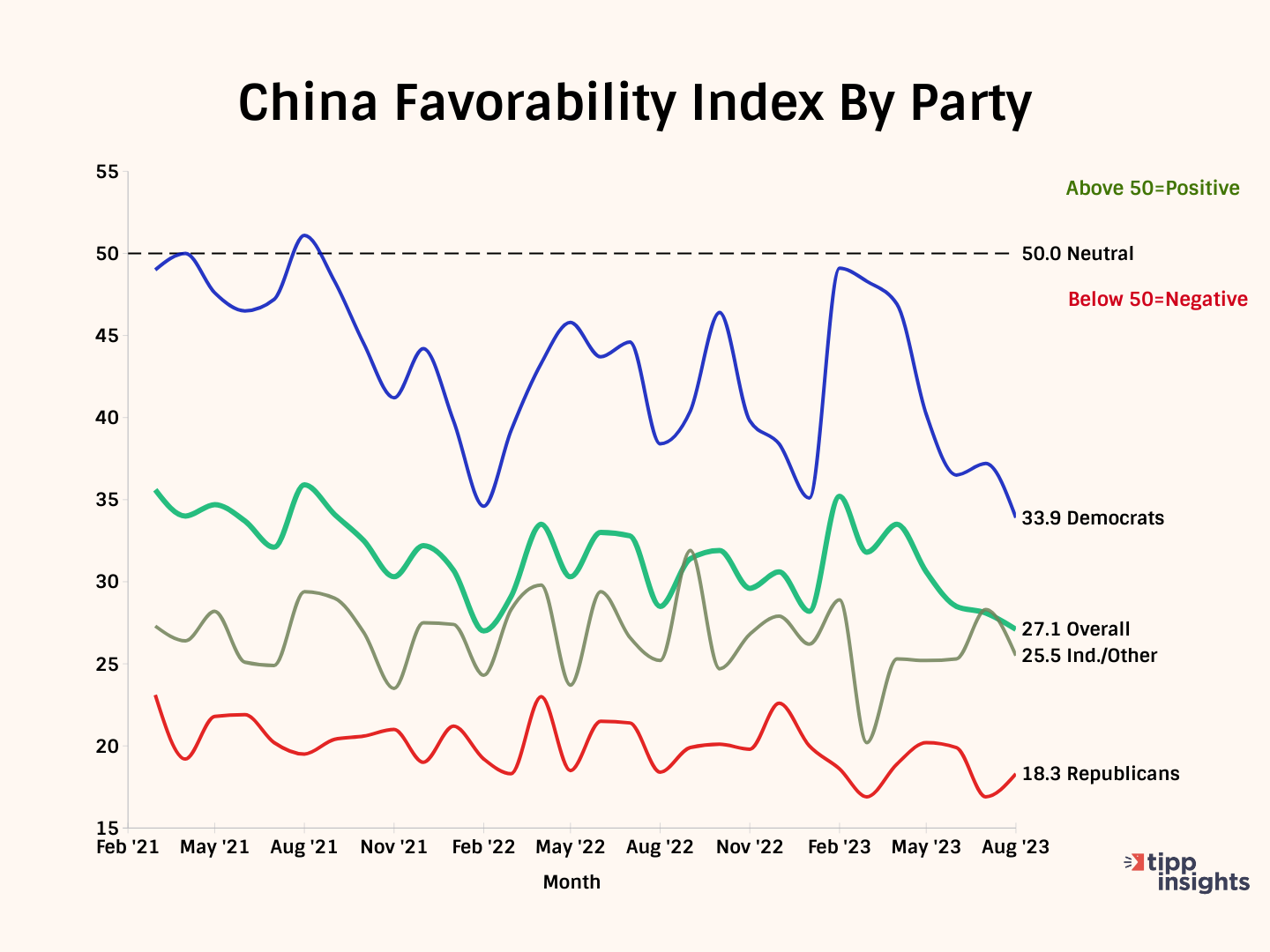
But by far the biggest differences are among voters divided by age group. As a general rule, the older you are, the less favorable you are toward China. If you’re in the 18-24 year range, at an index level of 45.6, you’re the closest of any group to hitting the 50 breakeven level.
It goes down from there, however: Among those 25-44 years in age, the index stands at 39.4; for those age 45-64, it’s 18.3; for those over 65, the might Baby Boomer voting bloc, its at an abysmal 14.3.
Race is another area where there’s broad disagreement. Among blacks and Hispanics, the index stands at 37.3, compared to 21.6 among whites.
One other possibly noteworthy difference sticks out: Where you live seems to influence how you view China. The China Favorability Index for urban dwellers, for instance, stands at 39.8, well above the overall average. For those living in the suburbs, the index is 21.9; for those in rural areas, a measly 18.6.
Further complicating the picture is the fact that, when looking at voter ideology and China favorability, there is surprisingly little difference among the various affiliations. The Favorability Index among self-described liberals, for instance, stands at 29.4; for moderates, it’s 26.1; for conservatives, 25.6. With the poll’s margin of error at +/-2.7 percentage points, all those readings are within a fairly tight range of one another.
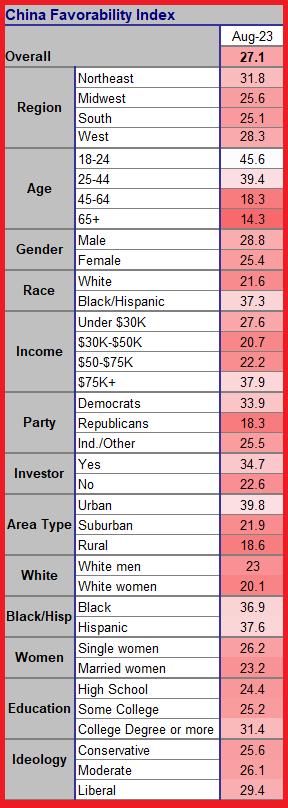
Why is this important? No doubt, China will be one of the topics that comes up when candidates hit the hustings this fall and next year. In fact, it’s already part of our national conversation.
China’s reversion to repressive policies reminiscent of its bad old communist days has had a dire effect on its economy. Recent headlines tell the tale: “China’s Economy in Grave Danger as Growth Engines Stall, Options Dwindle,” “China’s 40-Year Boom Is Over. What Comes Next?“, “The China Century Is Over,” and “Dark Clouds Loom Over Chinese Economy,” among many others.
Worse still, China’s activities in the U.S. and abroad — including spying campaigns, theft of U.S. trade secrets, the establishment of “covert” police stations here in the U.S., massive efforts to influence U.S. politics and opinion, its repeated efforts to illegally expand and militarize its control of the South China Sea, and continuing military and political threats against Taiwan — may well become issues in the coming year.
And that list doesn’t include the growing belief among many Americans that the COVID-19 virus originated in a Chinese government lab, not among bats in the wild, as Chinese officials maintain.
With U.S. companies reducing their investments in China, many Americans are likely to focus more on military threats, spying and China’s reversion to communist-style governance than on buying ever-cheaper goods from the country — especially after China has recently been credibly accused of violating human rights and using slave labor.
A handful of Republican candidates have already called for the revocation of “Permanent Normal Trade Status” with China because of its growing hostility towards the U.S.
PNTS might not sound like much, but it was a gift to China after it was admitted into the World Trade Organization in 2001. That move gave China nearly tariff-free access to the U.S. markets, which led to a flattening out of U.S. manufacturing output after decades of solid growth.
While popular with many urban consumers in America’s wealthier cities and suburbs, who paid less for goods from China, China’s boom decimated many once-robust U.S. industrial regions, particularly in the Midwest and parts of the South. (Of America’s four major regions, the Midwest and South score lowest on the I&I/TIPP China Favorability Index, at 25.6 and 25.1, respectively.)
China trade is already growing as a political combat zone for the 2024 presidential campaign. The Washington Post recently sketched out the battle lines:
Three of former President Donald Trump’s challengers for the Republican nomination — former Vice President Mike Pence, Florida Governor Ron DeSantis and former South Carolina Governor Nikki Haley — say they will push Congress to revoke China’s PNTR status.
A group of Republican senators, including Tom Cotton, Rick Scott and J.D. Vance have already introduced legislation to strip China of its favorable trade treatment. Trump’s former trade chief, Robert Lighthizer, who is assisting with Trump’s 2024 campaign, also supports an end to China’s PNTR status.
President Joe Biden and his administration haven’t weighed in on the issue.
On the other hand, some free-traders in the Republican Party — not to mention libertarians, liberal-leaning independents, and China-friendly Democrats — will support continuing China’s current trade status with the U.S.
So stay tuned. The big political debate over China is about to begin in earnest.
I&I/TIPP publishes timely, unique, and informative data each month on topics of public interest. TIPP’s reputation for polling excellence comes from being the most accurate pollster for the past five presidential elections.
Terry Jones is an editor of Issues & Insights. His four decades of journalism experience include serving as national issues editor, economics editor, and editorial page editor for Investor’s Business Daily.
Hey, want to dig deeper? Download data from our store for a small fee!
Our performance in 2020 for accuracy as rated by Washington Post:
